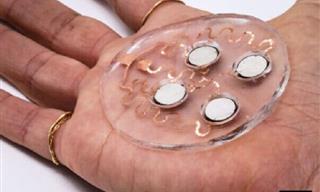1. You’re partaking in some marathon-intensity exercise
Athletes who engage in intense exercise, especially for prolonged periods of time (usually an hour or more) may need a sodium boost, as otherwise, hyponatremia can occur (a drop of sodium in the blood resulting in dizziness, confusion, weakness and even death). As such, hyponatremia is not common, though it can occur when people are sweating hard and drinking lots of water to rehydrate, but they aren't replacing the sodium their bodies shed while perspiring. So, after an intensive work-out, be sure to eat some salty foods, allowing your body to recover.
2. You live in a hot, muggy climate
Excessive sweat can result in a drop in sodium. Excessive sweating could result in hyponatremia, even if you haven't worked out. So, if weather conditions are making you sweat hard, or you're experiencing headaches, light-headedness or are feeling parched, grab a salty snack.
3. You have this medical condition
Salt-losing nephropathy is a form of kidney disease that makes it difficult for your body to maintain adequate sodium levels. People who suffer from this condition lose excess sodium in their urine, and need to make a conscious effort to keep their sodium levels up. If not, this may result, once again in hyponatremia, which could produce symptoms like dizziness, headaches, weakness or fatigue.
4. You’re taking diuretic medications
There are several medications, especially diuretics, which can lead to mineral imbalances in your body by increasing your urine output. While diuretics are often prescribed for people with hypertension, it is also true that eating too much salt can be risky for those with elevated blood pressure. So, there are times when someone taking diuretics needs to consume some extra sodium to help balance things out.
5. You’re an older adult, and your thinking is muddled
Seniors, particularly those aged 80 and over, may experience a brain boost by upping their salt intake. A study found that compared older adults on low-sodium diets to those who consumed moderate amounts of sodium, those that consumed moderate amounts performed better on some brain function tests. Still, bear in mind that this study is preliminary and does not warrant an excuse to go crazy with the salt shaker.
6. You’re suffering from this rare syndrome
A cluster of conditions known collectively as Bartter syndrome can affect your kidneys' ability to process the salt you consume. This occurs when too much sodium ends up in your urine and not enough is absorbed into your body. While this condition is rare, it tends to spring from genetic abnormalities. Symptoms of the syndrome include everything from vomiting and excessive thirst to intense salt cravings. Still, you should always speak with your doctor before upping your consumption.
 Go to BabaMail
Go to BabaMail

























